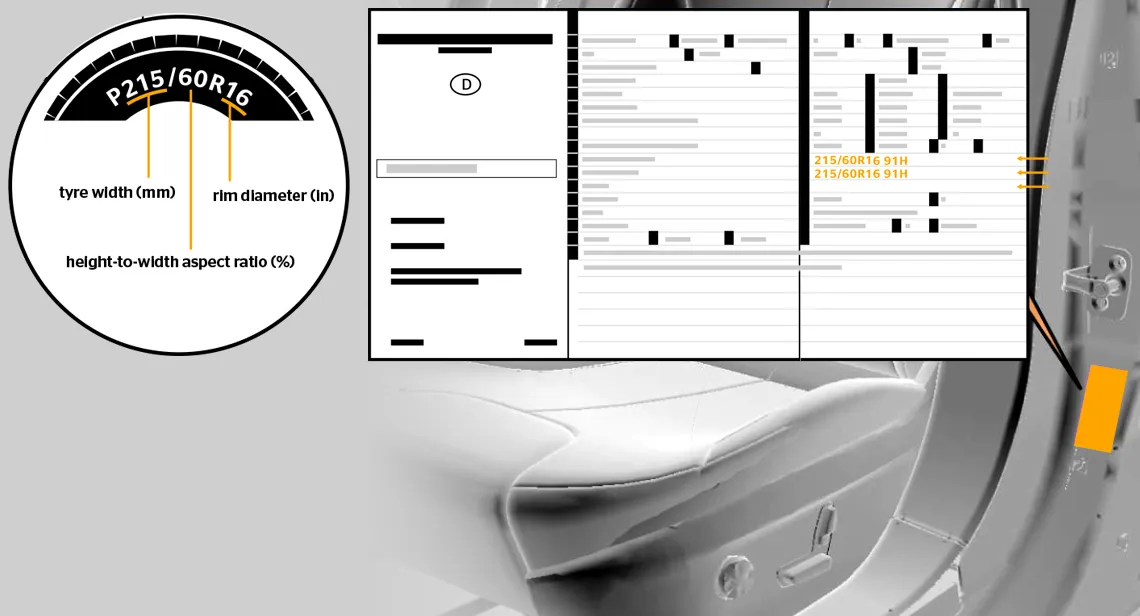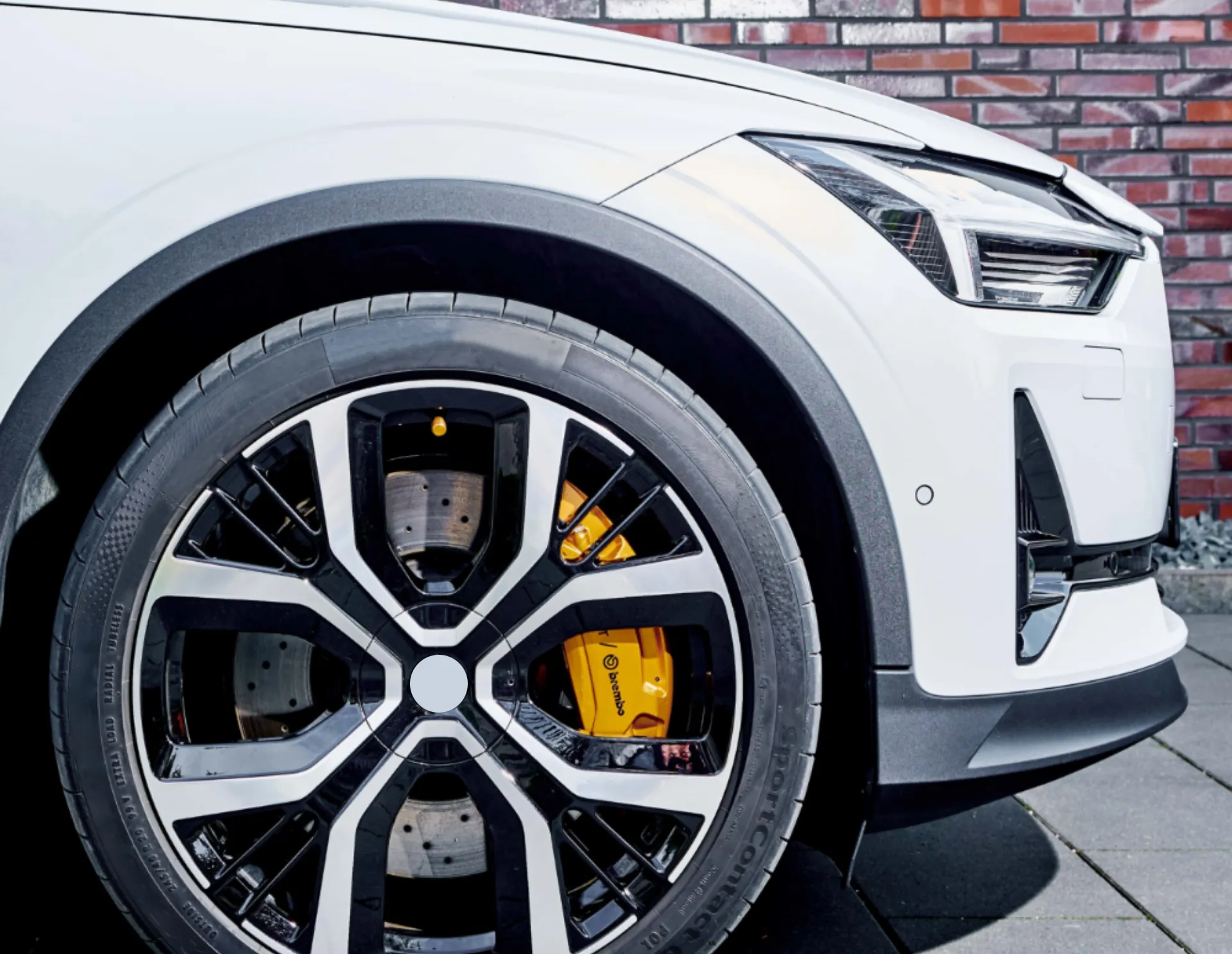.png)
As the world shifts towards sustainability in tires and vehicles, Bahrain is exploring various alternatives to traditional fossil fuels for vehicles. With rising oil prices and increasing environmental awareness, several innovative solutions are gaining traction in the Kingdom. This blog delves into these sustainable alternatives and their potential impact on Bahrain’s transportation sector.
Electric Vehicles (EVs)
Electric vehicles (EVs) have emerged as a promising alternative to fossil-fuel-powered cars. These vehicles run on electricity stored in batteries, producing zero tailpipe emissions. As global trends shift towards cleaner energy, Bahrain has seen a rising interest in EV adoption.
Benefits of EVs:
- Reduced Air Pollution: EVs contribute to lower levels of air pollutants, which is crucial for improving air quality and public health.
- Quieter Operation: EVs operate more quietly than traditional combustion engines, reducing noise pollution in urban areas.
- Lower Operating Costs: EVs generally have lower maintenance and fuel costs compared to conventional vehicles, making them economically attractive in the long run.
To support the widespread use of EVs, Bahrain is deploying fast EV charging stations. This infrastructure development is essential for addressing range anxiety and making EVs a viable option for daily commuting and long-distance travel.
Biodiesel
Biodiesel is a renewable fuel made from vegetable oils, animal fats, or recycled restaurant grease. It can be used in existing diesel vehicles without modification, offering a practical solution for reducing emissions.
Advantages of Biodiesel:
- Cleaner Burning: Biodiesel burns more cleanly than petroleum diesel, resulting in lower emissions of pollutants such as carbon monoxide, particulate matter, and hydrocarbons.
- Renewable Resource: As biodiesel is made from renewable resources, it helps reduce dependency on finite fossil fuels.
- Energy Security: By producing biodiesel locally, Bahrain can enhance its energy security and reduce reliance on imported fuels.
Used Cooking Oil Conversion
Bahrain has taken an innovative step by converting used cooking oil into fuel. This initiative aims to replace diesel with a cleaner alternative, promoting sustainability and reducing waste.
Benefits of This Initiative:
- Waste Reduction: Repurposing used cooking oil helps manage waste effectively, preventing it from ending up in landfills or waterways.
- Sustainable Fuel Source: Converting waste oil into fuel creates a sustainable cycle, turning a waste product into a valuable resource.
- Lower Emissions: Fuel made from used cooking oil burns cleaner than traditional diesel, contributing to lower greenhouse gas emissions.
Hydrogen Fuel Cells
Hydrogen fuel cells generate electricity by combining hydrogen and oxygen, with water vapor being the only byproduct. While hydrogen infrastructure is still developing, this technology holds significant promise for zero-emission transportation.
Key Features of Hydrogen Fuel Cells:
- Zero Emissions: Hydrogen fuel cells produce only water vapor, making them an environmentally friendly option.
- High Efficiency: These cells are highly efficient at converting fuel into energy, providing better performance compared to traditional engines.
- Versatility: Hydrogen can be produced from various sources, including water and natural gas, offering flexibility in fuel production.
Natural Gas Vehicles (NGVs)
Natural gas vehicles (NGVs) run on compressed natural gas (CNG) or liquefied natural gas (LNG). They are a cleaner alternative to gasoline or diesel vehicles because they emit fewer greenhouse gases.
Advantages of NGVs:
- Lower Emissions: NGVs release fewer pollutants, including carbon dioxide, nitrogen oxides, and particulate matter, making them better for the environment.
- Cost-Effective: Natural gas is usually cheaper than gasoline or diesel, helping drivers save money on fuel.
- Abundant Supply: Natural gas is plentiful, and Bahrain has the resources to support the adoption of NGVs.
However, for NGVs to become more popular, it's essential to expand the infrastructure. This means building more refueling stations and ensuring a consistent supply of natural gas.
Bioethanol
Bioethanol, derived from crops such as sugarcane or corn, can be blended with gasoline. It reduces carbon emissions and enhances fuel octane levels, offering a cleaner alternative to traditional gasoline.
Benefits of Bioethanol:
- Reduced Greenhouse Gas Emissions: Bioethanol produces fewer carbon emissions compared to conventional gasoline, contributing to climate change mitigation.
- Renewable Energy Source: Being derived from crops, bioethanol is renewable and supports agricultural industries.
- Improved Engine Performance: Bioethanol can enhance fuel octane levels, improving engine performance and efficiency.
Bahrain could explore bioethanol as a cleaner fuel option, potentially integrating it into its fuel mix to reduce its carbon footprint.
Solar-Powered Vehicles
Solar-powered vehicles utilize solar panels integrated into their design to harness sunlight and charge batteries. While not yet mainstream, solar-powered cars offer a sustainable mobility solution.
Potential of Solar-Powered Vehicles:
- Renewable Energy: Solar power is a limitless, clean energy source that can significantly reduce reliance on fossil fuels.
- Reduced Operating Costs: Once the solar panels are installed, the energy they produce is free, lowering long-term operating costs.
- Sustainability: Solar-powered vehicles can operate with minimal environmental impact, contributing to a sustainable future.
While technological advancements are needed to make solar-powered vehicles more practical and affordable, they represent a promising direction for future transportation.
Efficient Public Transportation
Investing in efficient public transport systems, such as electric buses and trains, can reduce individual car usage and overall fuel consumption. Enhanced public transportation networks can alleviate traffic congestion, lower emissions, and provide a reliable alternative to private vehicle use.
Benefits of Efficient Public Transportation:
- Reduced Traffic Congestion: A robust public transport system can reduce the number of vehicles on the road, easing traffic congestion.
- Lower Emissions: Public transport vehicles, especially electric ones, emit fewer pollutants compared to individual cars.
- Cost Savings: Public transportation can be more cost-effective for individuals, saving money on fuel, maintenance, and parking.
By focusing on developing and expanding public transportation infrastructure, Bahrain can promote sustainable urban mobility and reduce its carbon footprint.
Continental Tires in Bahrain: Leading the Way in Vehicle Connectivity
As Bahrain explores alternatives to traditional fuels, neighboring Kuwait is making strides in vehicle connectivity and smart driving solutions, led by Continental Tires. This innovation complements Bahrain’s efforts by enhancing vehicle efficiency and safety.
Smart Tire Solutions:
Continental Tires has integrated intelligent sensors within the tire structure. These sensors continuously monitor tire pressure, temperature, and tread wear, providing real-time data to drivers. This technology is crucial in the harsh climates of the Gulf, where extreme temperatures and sandstorms can significantly impact tire health.
Seamless Integration with Vehicle Ecosystem:
Continental’s smart tire solutions seamlessly integrate with broader vehicle ecosystems. Through telematics systems and smartphone apps, drivers can access real-time tire data, empowering them to make informed decisions about tire maintenance and safety. This integration is facilitated by cloud-based platforms, making tire data readily accessible and actionable for predictive maintenance and performance optimization.
ContiConnect for Fleet Managers:
Continental Tires also offers ContiConnect, a service designed for fleet managers. This system uses sensors inside tires to communicate with company premises via satellite, enabling constant monitoring of air pressure and avoiding dangerous punctures. By reducing mobility costs and improving safety, ContiConnect™ enhances the efficiency of fleet operations.
.png)
Next-Generation Tires for Electric Vehicles:
Continental Tires is developing next-generation tires to meet the unique demands of electric vehicles (EVs), which have high torque and heavy battery weights. These tires are designed to enhance performance, efficiency, and safety for EVs, supporting the shift towards greener transportation solutions.
By adopting Continental’s innovative solutions, Bahrain is setting a benchmark in vehicle connectivity and smart driving technologies. Bahrain can draw inspiration from these advancements to enhance its own transportation sector, promoting safer, more efficient, and environmentally friendly mobility.
Conclusion
Bahrain has the opportunity to transition toward cleaner and more sustainable fuels, paving the way for a greener future in transportation. By promoting the adoption of electric vehicles, exploring biodiesel and bioethanol options, and investing in innovative solutions like hydrogen fuel cells and solar-powered vehicles, the Kingdom can significantly reduce its environmental impact.
Furthermore, enhancing public transportation systems will play a crucial role in this transition, offering a viable alternative to private car use and contributing to overall sustainability goals. Learning from Bahrain's advancements in smart driving solutions by Continental Tires can also bolster Bahrain's efforts, ensuring that its transportation infrastructure is equipped with the latest technologies for safety and efficiency.
As Bahrain embraces these alternatives to traditional fuels, it sets an example for other nations in the region and beyond, demonstrating that a commitment to innovation and sustainability can drive positive change in the transportation sector.








.png)